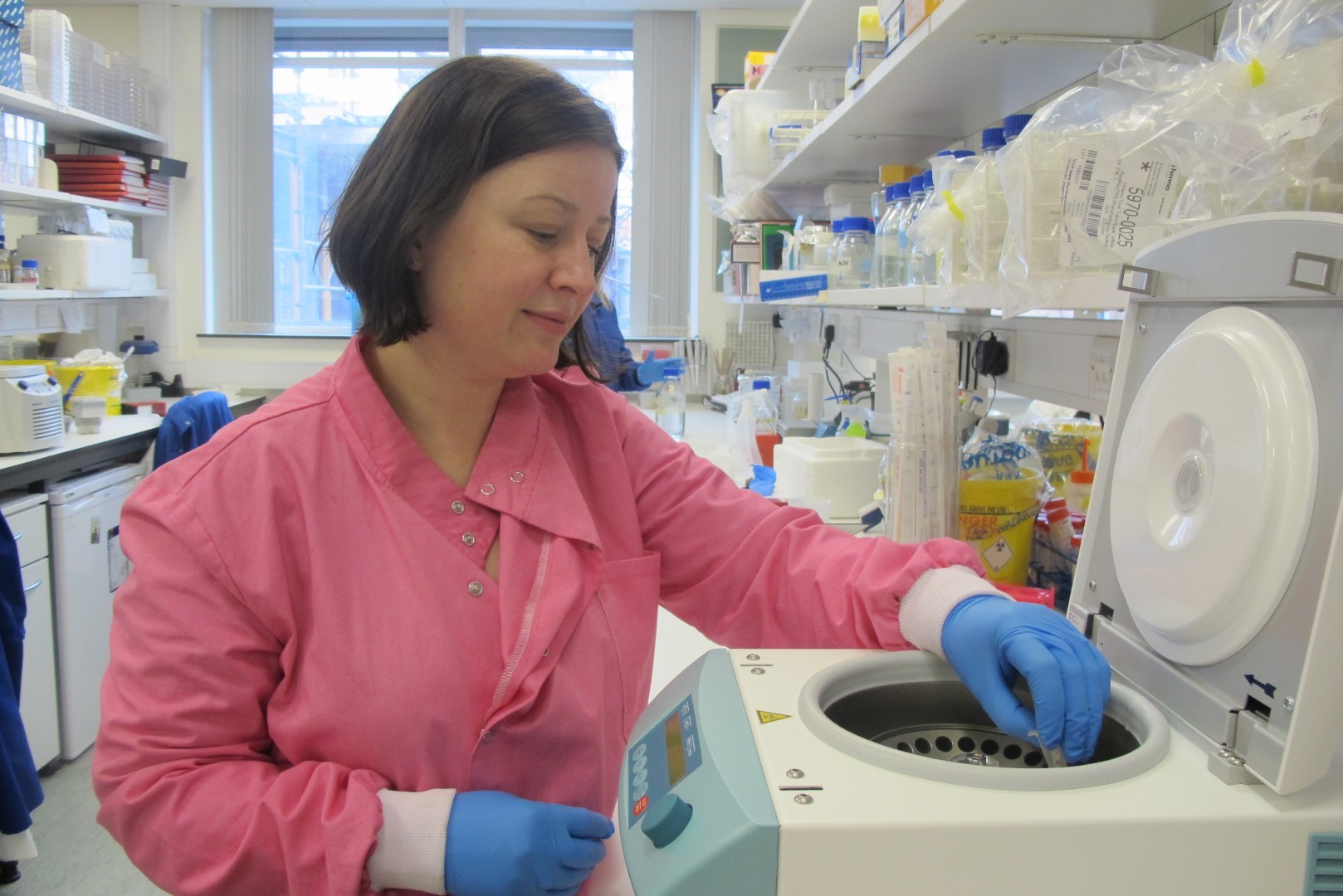Around 15% of breast cancer are classed as triple negative. This form of breast cancer currently has limited targeted treatments available. So, we need to find new and effective ways to treat people diagnosed with triple negative breast cancer.
In these blogs, we explore some of the biggest topics in breast cancer research. And look at how researchers are working to improve the lives of those affected by breast cancer.
Around 15% of breast cancer are classed as triple negative. This form of breast cancer currently has limited targeted treatments available. So, we need to find new and effective ways to treat people diagnosed with triple negative breast cancer.

The importance of developing new treatments
Jade, from Wiltshire, is a mother of 2. She was diagnosed at 27 and was caring for her 8-month-old son when she was diagnosed with triple negative breast cancer. Chemo was difficult, but she praised the “absolutely brilliant” NHS staff who cared for her during this time.
“It was absolutely horrendous juggling chemotherapy with caring for two small children during the pandemic. However, I was incredibly fortunate my treatment was successful. It would be brilliant if this research helps to deliver new treatments and results in fewer women having to undergo the intense chemotherapy I went through.”
Jade was supported by her friends and family, but she still felt that she missed much of the joy of raising a toddler. She underwent months of chemo and radiotherapy and had two operations.
A few months after being told that she was cancer-free, and after being told that she wouldn’t be able to have more children, Jade was overjoyed to learn she was pregnant again. Jade’s story highlights the impact that breast cancer treatments can have. And, why it's so important that our research looks for smarter and kinder ways to treat the disease.
Utilising new vaccine technology
Research is all about finding new and innovative ways to treat breast cancer. This comes down to better understanding how different processes in the body, that are linked to breast cancer, work and how different molecules can be targeted to provide new treatments for the disease.
One area of research with amazing recent breakthrough is mRNA vaccine technology. You may have heard of this technology, as this was used to develop the Pfizer-BioNTech COVID-19 vaccine.
The vaccine technology works by presenting instructions (mRNA) to our immune cells so they can recognise certain molecules. For example, this could be a molecule found on the outside of a cancer cell. These instructions help the immune system to recognise the cancer cell, and kill it more quickly.
Scientists hope that this technology can be used to create new treatments for certain cancers, like triple negative breast cancer.
Developing a breast cancer vaccine
Dr Niamh Buckley, from Queen’s University Belfast, is one of those scientists. She wants to use this mRNA vaccine technology to develop a new way to treat triple negative breast cancer. And, create a treatment that could stimulate the immune system to recognise and fight cancer with as little side effects as possible.
The vaccine treatment will target a protein called p53. Almost 90% of triple negative breast cancers have a large amount of this protein compared to healthy cells. And there is a simple test to check if a tumour has a lot of p53, so doctors can find who might benefit from this treatment.
Niamh is currently using patient samples to determine what part of p53 the vaccine should target, and is testing the immune response to this treatment. She also wants to test in mice how effective this treatment is on its own, and in combination with chemotherapy.
Research projects like this are important steps towards the best possible treatments and support for people affected by the disease.
Whatever you’re going through. Whoever you are. We’re here.